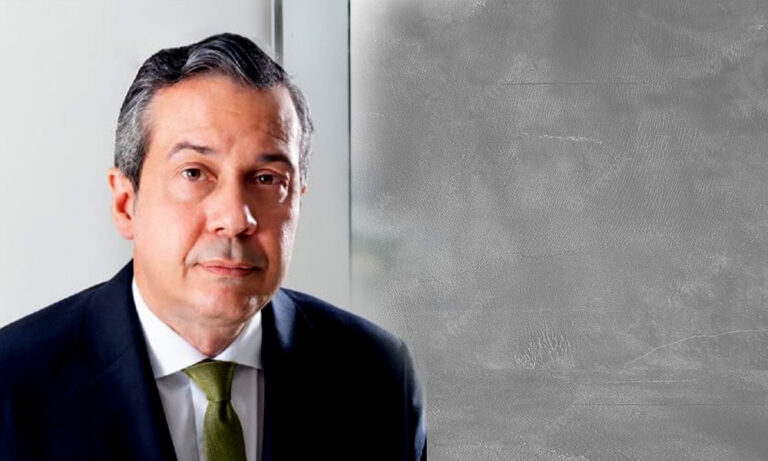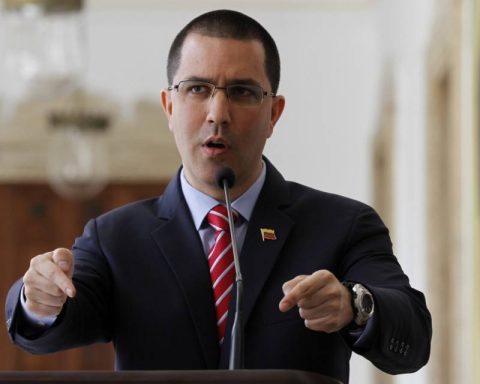The differences with the management of the government and the demands are not something exclusive to the unions and the PIT-CNT. In recent months there were several occasions where discrepancies on the side of the businessmen with the Executive Power were also exposed on issues of economic policy, labor relations and progress in structural reforms such as social security, for example.
The dollar is never missing
A theme that gained strength in June is the claims from the export sector due to the drop in the price of the dollar and its impact on competitiveness. At the beginning of the month, the Union of Exporters of Uruguay (UEU) argued that even within a global phenomenon of weakening of the dollar, the currency rose in competitor countries, while it lost ground at the local level.
The union pointed to the contractionary policy of the Central Bank (BCU) to lower inflation, which is understood to “impact” on the exchange rate, and stated that the current situation “harms” the entire export sector, in its different areas, and in particular to the export manufacturing industry, which generates jobs. “Unfortunately, there are companies that have already decided to close their business in our country due to the loss of competitiveness and we do not want this situation to spread,” said the UEU in reference to the closure of the Cinter-Aperam metallurgical company.
wages and inflation
Labor relations and salary adjustments in private activity is another chapter in which the business sector has raised nuances. The first point is linked to the Collective Bargaining Law. A little over a month ago, the Executive Power sent to Parliament a project with several modifications that seeks to address the observations made by the International Labor Organization (ILO), in response to the complaint filed by employers a decade ago.
The business associations expressed that they value the initiative as an advance, but they also made it clear that it does not meet their expectations. This because the main claim is dropped on the powers of the Salary Councils and bipartite negotiation. A source from the sector revealed a few days ago to The Observer that if the project does not have changes in Parliament –and the proposal made by the Executive Power ends up being approved– the complaint will be maintained before the ILO.
The employer sector has also not been too aligned with the suggestion made by the government to negotiate with the unions to advance the payment of salary corrections for past inflation by one year.
Ministry of Labor and Social Security.
Superior Tripartite Council of the private sector.
As soon as this proposition was known, one of the first reactions heard from the business side was that, while the government is asking them to watch prices, they are asked to correct wages in parallel. Even the government’s suggestion surprised the unions because it was done with existing agreements, and the proposal was even questioned as a “change” in the rules of the game. This was raised in a session of the Superior Tripartite Council that took place in April.
And the first results of the negotiations show, for example, that in most of the trade sectors – which were authorized to negotiate this advance – there was no consensus due to the refusal of the companies. On paper, what these companies did was bend to maintain what was already agreed in 2021 with the guidelines that the Executive Power had given on the basis of salary adjustments for expected inflation. The passage of time marked that those projections questioned by the unions fell short and have aggravated the loss of purchasing power in several sectors that will have to wait longer to recover salary. It is also worth noting that in sectors linked to agriculture, the corrective will be advanced.
The pension reform
The social security reform is another point where the business associations are repeatedly calling for progress. “We all know that there is a ship that has a hole, that ship moves away from the port. Are we going to let it sink because of the political costs that can be charged? questioned the president of the Chamber of Industries, Alfredo Antía during the lunch of the Association of Marketing Directors (ADM) two weeks ago.
That proposal was part of others linked to the prices of electricity and fuels –they are still among the highest in the region–, fiscal pressure and its effects on industrial investment, and the “problem of inflation”. “We like it to be said: ‘Businessmen come here to cry, to ask for what they are lacking’. We all have obligations ahead of us. Clearly the government has them,” Antía said that day.
“The bad sign”
In March, the government decreed a change in the tax treatment of investment in pastures and in soil biological tools. Before, when the subject began to be discussed, the Rural Association of Uruguay (ARU) requested a meeting with the Ministry of Economy and Finance (MEF), but the producers were not received. When the union asked for a response, it was informed that the decree had already been approved and that the meeting would not take place, which was seen by the union as “a bad sign.”told Gonzalo Valdés, head of the ARU in a conference during the last edition of Expo Melilla.
As Valdés highlighted on the occasion, from the ARU they understand that not having received them is not something in accordance with the current government’s policy. The leader recalled that the President of the Republic, Luis Lacalle Pou, has remarked in his press conferences that “we must dialogue with everyone because that is the essence of democracy”, and “unfortunately, in this case, the Ministry of Economy that didn’t follow him.”
















